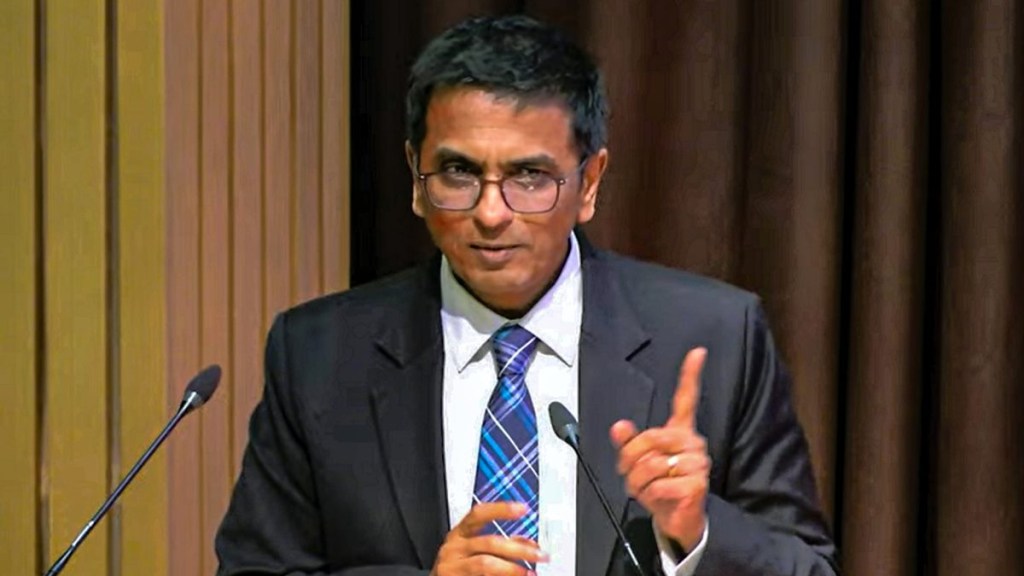Justice Dhananjaya Y Chandrachud, who took over as India’s 50th Chief Justice of India on Wednesday, has played a pivotal role in digitisation of the judiciary and been part of benches that delivered landmark verdicts. CJI Chandrachud, often referred to as DYC in legal circles, was sworn in by President Droupadi Murmu, and takes over from Justice Uday Umesh Lalit, who recommended him as his successor.
Among the important landmark judgments he has been a part of, include, constitutionality of Aadhaar, right to privacy, Sabarimala case, Ayodhya title dispute, demolition of twin towers in Noida, among others.
As the CJI begins his new sojourn, here are some important cases pending before the Supreme Court:
–Gyanvapi Mosque Dispute: In the Committee of management Anjuman Intezamia Masajid Varanasi vs Rakhi Singh case, the SC needs to decide if the Varanasi civil court’s order allowing a videographic survey into the origins of the Gyanvapi Mosque violates the Places of Worship (Special Provisions) Act, 1991.
On May 16, the Varanasi Civil court had ordered the district magistrate to seal an area within the Gyanvapi premises. Hindu petitioners argued the presence of a ‘shiva lingam’ in the premises of the mosque.
Also Read: Who is CJI Dhananjaya Y Chandrachud? All you need to know about the 50th Chief Justice of India
–Agnipath recruitment scheme – In the Harsh Ajay Singh vs Union of India case, the Supreme Court will hear petitions that challenged the Agnipath Recruitment scheme for the Armed Forces, which was announced by Centre on June 14.
The Agnipath scheme is aimed at recruiting young candidates between the ages of 17 and 23 to serve in the armed forces for a period of four years. Following the announcement of the scheme, violent protests were witnessed in several parts of the country.
–Distribution of freebies to doctors to increase sale of drugs – In the federation of medical and sales representatives associations of India vs union of India case, the petition asked the apex court to frame guidelines to regulate freebies that are given by pharma companies to doctors.
–Disqualification proceedings against Maharashtra MLAs – In the Subhash Desai vs principal secretary, governor of Maharashtra case, the Supreme court headed by Justice Chandrachud needs to decide whether the rebellion within the Shiv Sena led by Maharashtra Chief Minister Eknath Shinde amounts to defection under the 10th schedule of the Constitution.
The court has before it, four main key issues in relation to the case: Is splitting within a political party the same as defection? Does the rebellion by Shinde and other MLAs amount to defection? Can the Shinde faction of Shiv Sena be subject to disqualification proceedings under the 10th schedule? Is the MLAs’ rebellion an exercise of inner-party democracy or a ‘constitutional sin’ of defection, according to the Supreme Court Observer.
Also Read: DY Chandrachud, 50th Chief Justice of India: Know landmark judgments new CJI has been part of
–National Register of Citizens, Assam: In the Assam Public Works vs union of India case, the court will decide if Section 6A of the Act grants citizenship arbitrarily, if Section 6 A dilutes the political rights of Assamese citizens, among other key issues.
–Constitutionality of the Places of Worship Act – In the Ashwani Kumar Upadhyay vs Union of India case, the SC will decide whether the Places of Worship Act, 1991, which prevents the conversion of places of worship from the religion they were on August 15, 1947, is constitutionally valid.
The other pending cases before the CJI DY Chandrachud include the challenge to extended reservations in the Lok Sabha and State Assemblies, Section 15 of the Hindu Succession Act, Tribunals and finance Act, and ban on female genital mutilation, among others.

